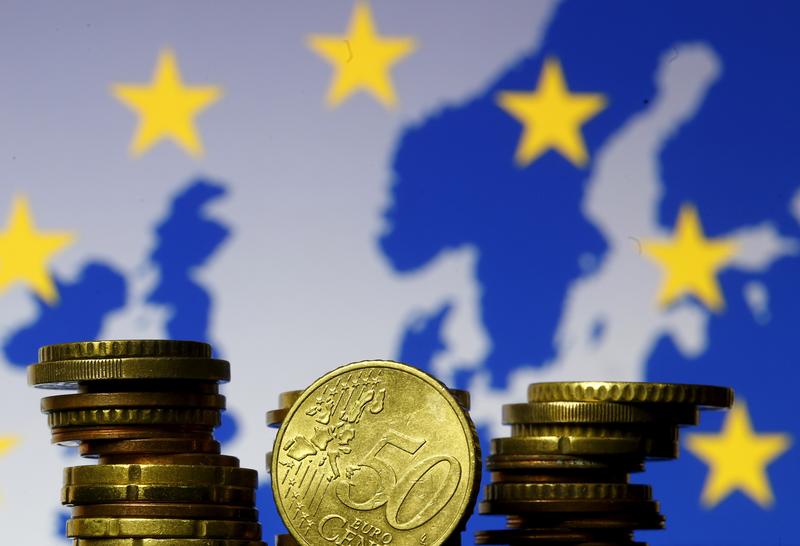
A decrease in public debt as a percentage of GDP both at the Eurozone level and at the level of the European Union was recorded in the third quarter of last year, with our country recording the highest debt as a percentage of GDP, but at the same time the largest decrease.
According to the data announced by Eurostat, at the end of the third quarter of 2022, the ratio of gross general government debt to GDP in the euro area was 93.0%, compared to 94.2% at the end of the second quarter of 2022 .
In the EU, the index also fell from 86.4% to 85.1%.
State debt decreased in the 3rd quarter of 2022
Compared to the third quarter of 2021, the government debt-to-GDP ratio also fell in the euro area (from 97.3% to 93.0%) and the EU (from 89.7% to 85.1% ).
At the end of the third quarter of 2022, the securities represented 82.5% of the euro area and 81.9% of the E.U. of general government debt. Loans amounted to 14.4% and 15.0% respectively.
Public debt at the end of the third quarter of 2022 by Member State
The highest ratios of public debt to GDP at the end of the third quarter of 2022 were recorded in Greece (178.2%), Italy (147.3%), Portugal (120.1%), Spain (115.6%), France (113.4%) and Belgium (106.3%), and lowest in Estonia (15.8%), Bulgaria (23.1%) and Luxembourg (24.6%)
Compared to the second quarter of 2022, four Member States recorded an increase in their debt to GDP at the end of the third quarter of 2022 and twenty-three a decrease.
Increases in the ratio were observed in Bulgaria (+1.9 percentage points – p.p.), the Czech Republic (+1.7 p.p.), France (+0.3 p.p.) and Sweden (+ 0.2 p.p.), while the largest decreases were recorded in Greece (-5.3 p.p.), Cyprus (-3.8 p.p.), Portugal (-3.3 p.p .), in Italy (-3.0 p.p.) and Croatia (-2.8 p.p.)
Compared to the third quarter of 2021, one Member State recorded an increase in its debt-to-GDP ratio at the end of the third quarter of 2022 and twenty-six Member States a decrease. The increase in the ratio was recorded in the Czech Republic (+4.7 p.p.), while the largest decreases were observed in Greece (-24.7 p.p.), Cyprus (-15.0 p.p.), Croatia (-11.1 p.p.), Portugal (-9.0 p.p.), Denmark (-8.8 p.p.), Ireland (-8.4 p.p.), Lithuania (-7.3 p.p.) and Slovenia (-7.2 p.p.).
Latest News

German Ambassador to Greece Talks Ukraine, Rise of Far Right & Tariffs at Delphi Economic Forum X
Commenting on the political developments in his country, the German Ambassador stressed that it was clear the rapid formation of a new government was imperative, as the expectations across Europe showed.

Athens to Return Confiscated License Plates Ahead of Easter Holiday
Cases involving court orders will also be excluded from this measure.

Servicers: How More Properties Could Enter the Greek Market
Buying or renting a home is out of reach for many in Greece. Servicers propose faster processes and incentives to boost property supply and ease the housing crisis.

Greek Easter 2025: Price Hikes on Lamb, Eggs & Sweets
According to the Greek Consumers’ Institute, hosting an Easter dinner for eight now costs approximately €361.95 — an increase of €11 compared to 2024.

FM Gerapetritis Calls for Unified EU Response to Global Crises at EU Council
"Europe is navigating through unprecedented crises — wars, humanitarian disasters, climate emergencies," he stated.

Holy Week Store Hours in Greece
Retail stores across Greece are now operating on extended holiday hours for Holy Week, following their Sunday opening on April 13. The move aims to accommodate consumers ahead of Easter, but merchants remain cautious amid sluggish market activity.

Green Getaway Ideas for Easter 2025 in Greece
Celebrate Easter 2025 in Greece the sustainable way with eco-farms, car-free islands, and family-friendly getaways rooted in nature and tradition.

Civil Protection Minister Details Summer Firefighting Plans at Delphi Forum
At the 10th Delphi Economic Forum, Minister of Climate Crisis and Civil Protection Yiannis Kefalogiannis discussed Greece's plans for the upcoming fire season.

How Shops and Markets Will Operate During Easter Holy Week
The Easter holiday schedule has been in effect since April 10, with retail stores open Palm Sunday, and most supermarkets also operating to meet consumer demand for Easter shopping

Why Is the French Aircraft Carrier Charles De Gaulle in Piraeus?
Docking in Piraeus after a four-month deployment in the Indo-Pacific region, the admiral of the aircraft carrier the Charles de Gaulle says, "Greece is our best partner in the Mediterranean."








































 Αριθμός Πιστοποίησης
Αριθμός Πιστοποίησης